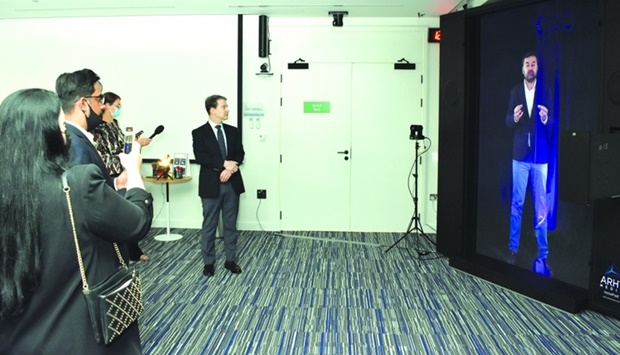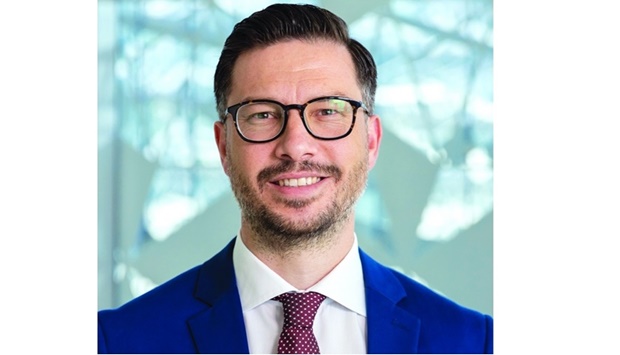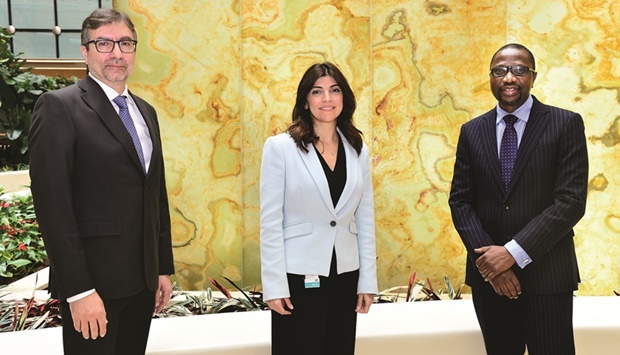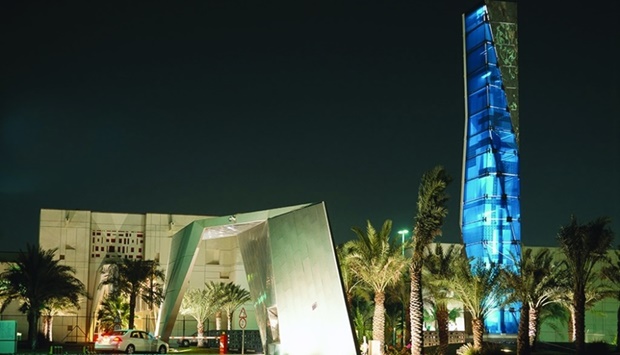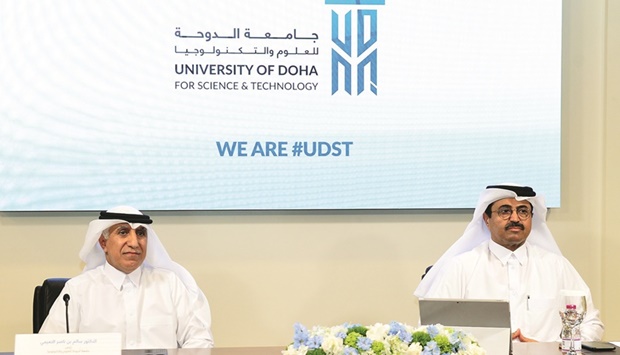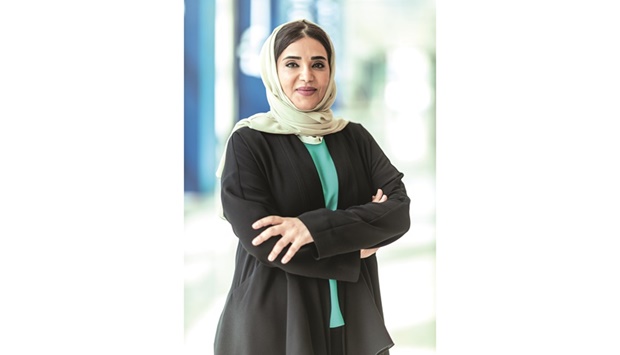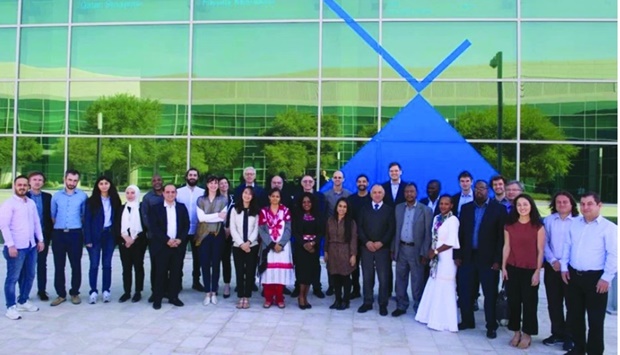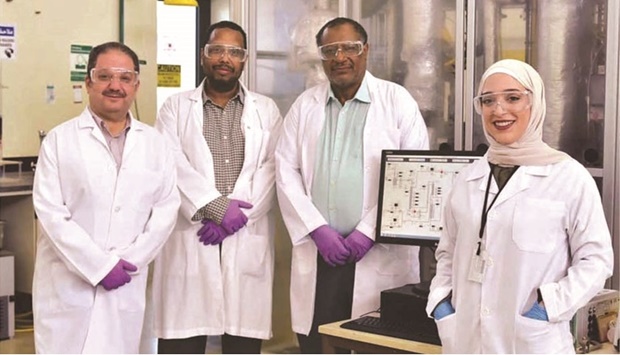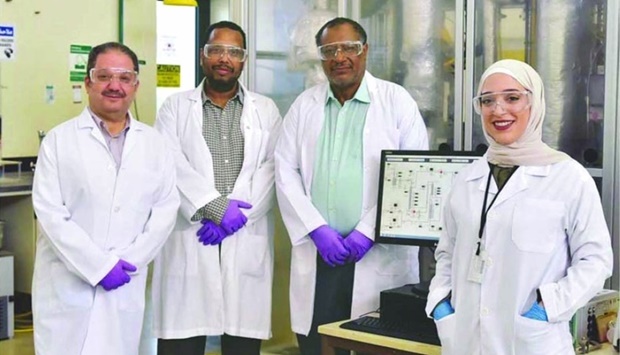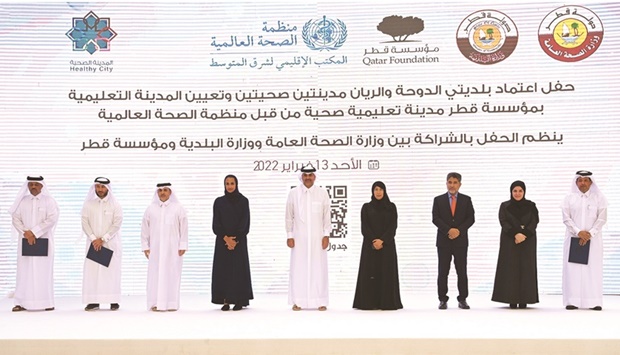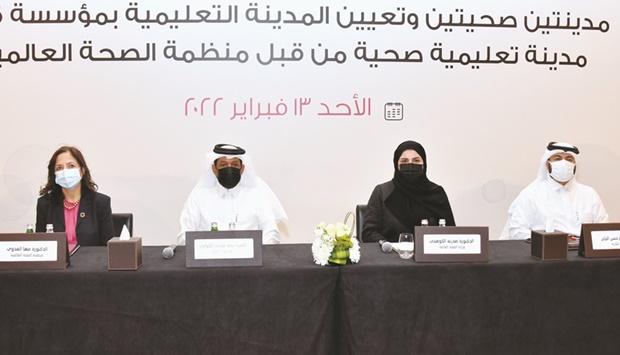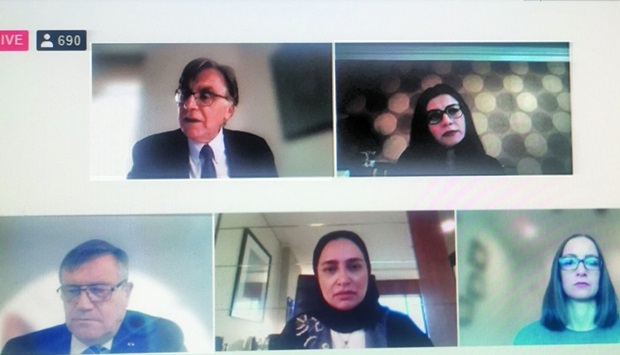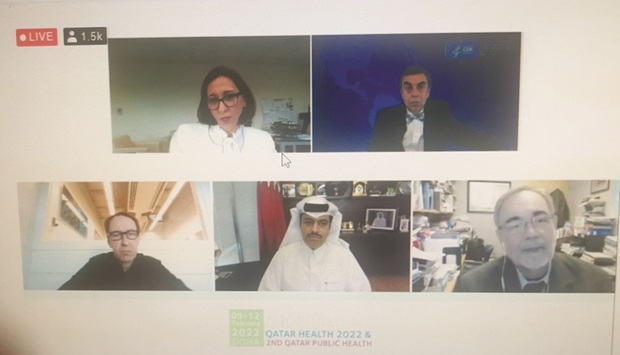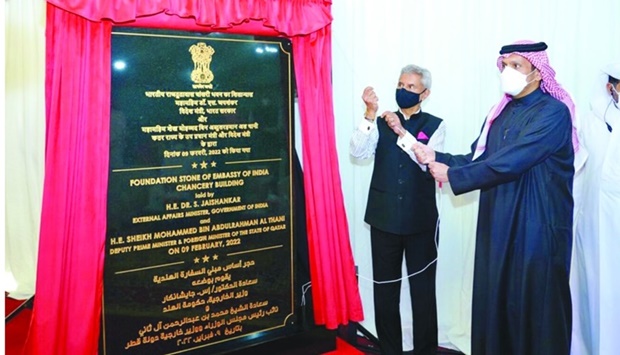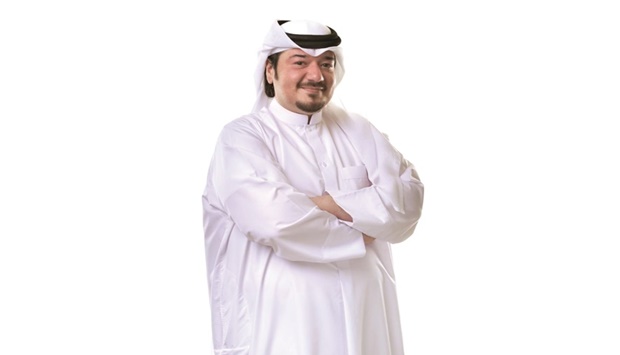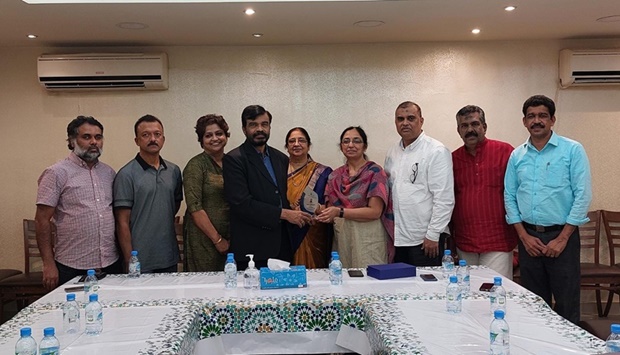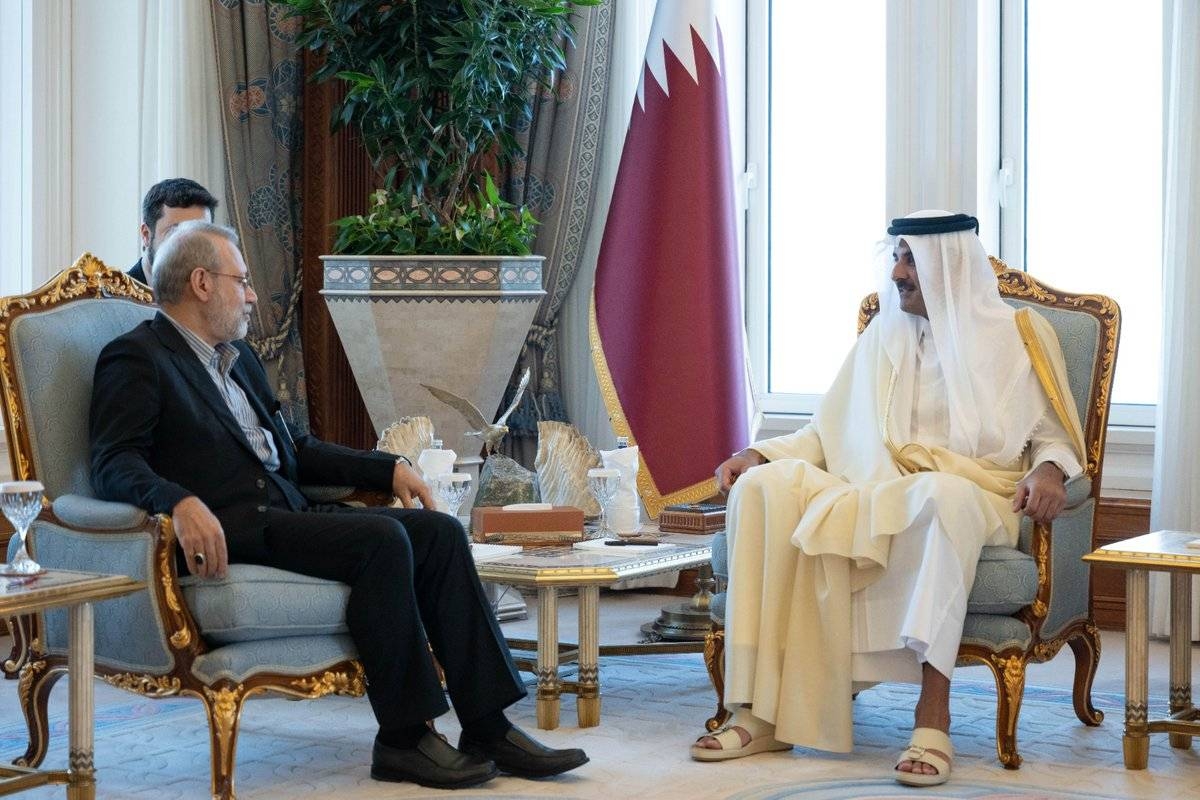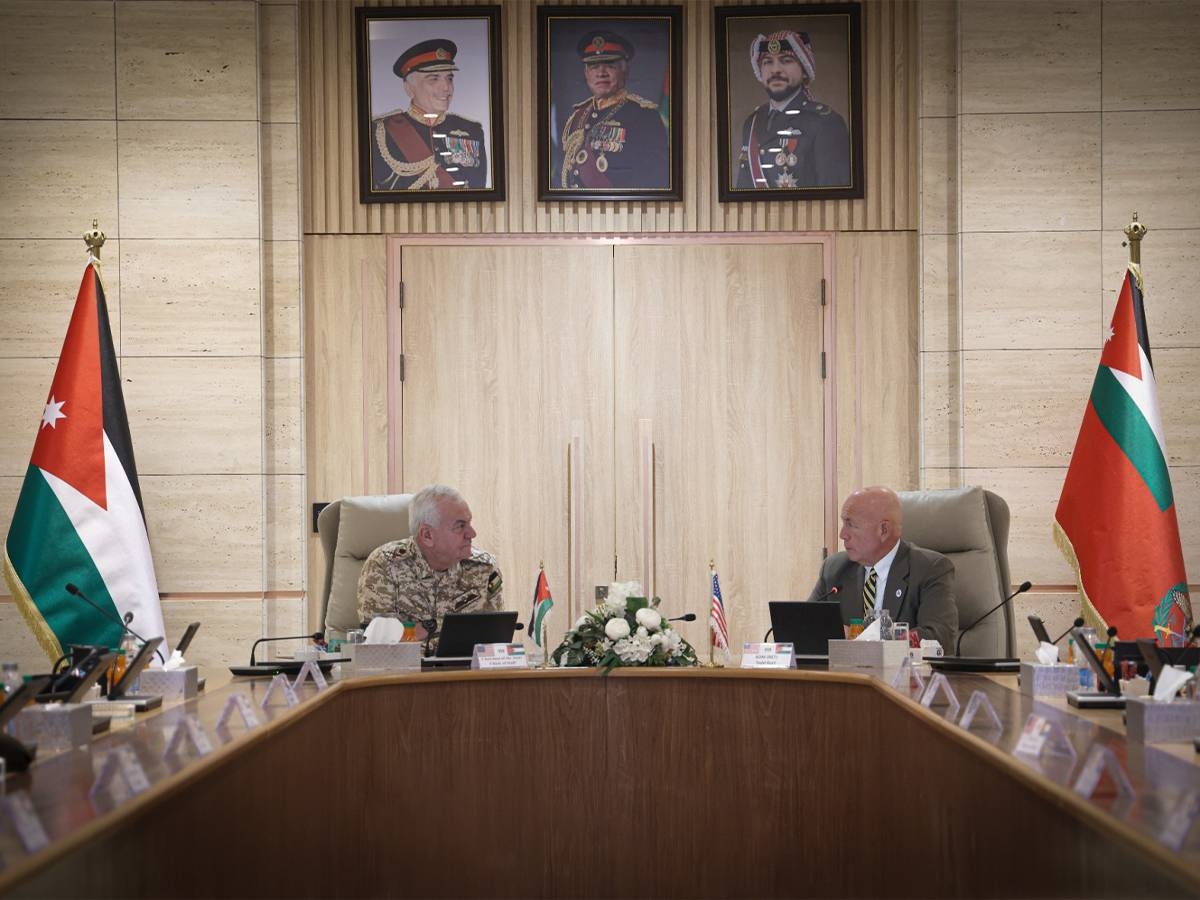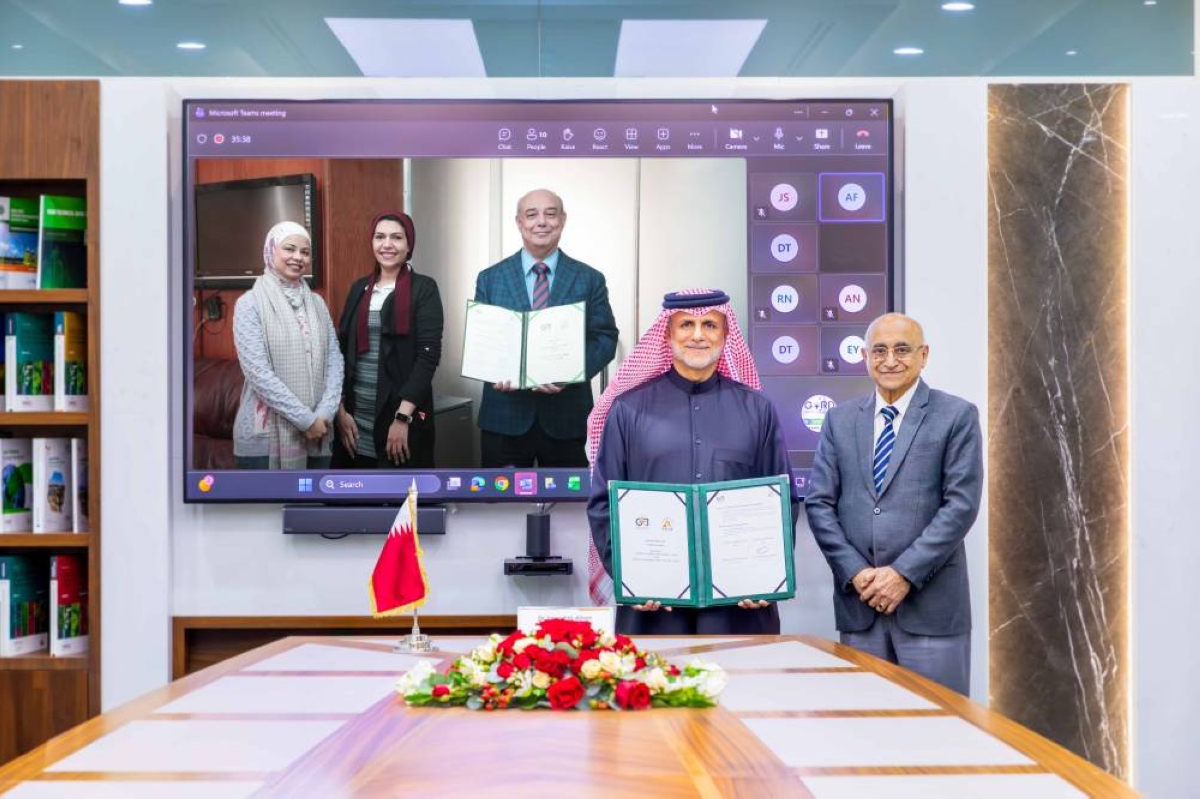The HEC Paris in Qatar campus is the hub for its programmes for the GCC countries and the region, dean, Dr Pablo Martin de Holan said Sunday. “All the activities of the HEC for the GCC region are done through the Doha campus, and we aim to bring students from the other GCC countries and beyond for all our major programmes,” he explained. HEC Paris in Qatar officials Dr de Holan was replying to a question from Gulf Times during a media visit of the new digitally enhanced Msheireb Downtown campus of the HEC Paris in Qatar. The dean also highlighted the cutting-edge hologram technology, which is unique and produced and installed by ARHT, a Canada-based company that has been a pioneer in the field of holographic telepresence. “This technology allows professors to instruct participants from wherever in the world by recreating a live classroom situation and interact with students,” Dr de Holan explained. “It also comes with the positive effect of reducing the school’s carbon footprint and enhances the breadth of expertise that the HEC Paris can bring to the classroom.” The Msheireb Downtown campus of the HEC Paris in Qatar Joshua Kobb, executive director for partnerships and growth at the HEC Paris in Qatar, described the university's new home in Msheireb as one which "embodies excellence and thought leadership, helping our participants and alumni drive the growth and success of Qatar and the region”. Jean-Amiel Jourdan, senior executive director of the Career Centre at the HEC Paris, said: “Knowing that the skills we are teaching at the HEC Paris equip leaders to effect global change, our campus in Qatar contributes to the global opportunities, offering the same level of excellence to participants and clients in the region.” The new campus, which has full access for the physically challenged, facilitates an enhanced learning and socialising environment for up to 250 participants across four classrooms. The green building campus, which is certified for Leadership in Energy and Environmental Design, also has large meeting and socialising areas and a dedicated co-working space made available to alumni of the HEC Paris in Qatar. A classroom in the new campus “Our new campus demonstrates our support to Msheireb Downtown, which is transforming the centre of Doha and recreating a lifestyle rooted in Qatari culture,” said Dr de Holan. “It has taken the HEC Paris to the heart of Doha’s new social and civic hub.” “This new modern campus captures the spirit and identity of Qatari heritage and architecture and the HEC Paris in Qatar,” he added. “It reflects our 11 years in the country and our strong connection to the local community and our 140 years of operations in France.” “It shows our promise for a future with even more impact and excellence, and it is an inspiring backdrop to our ever-expanding activities,” Dr de Holan remarked.

Joseph Varghese
A journalist with a penchant for reporting events, Joseph Varghese digs deep to unearth facts. With several years of experience, including at Gulf Times, Joseph handles health, science and technology, IT and education in addition to everyday developments.
Most Read Stories

